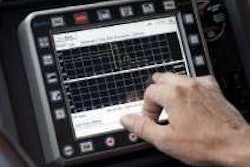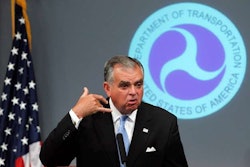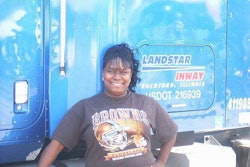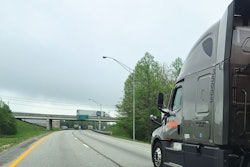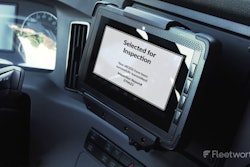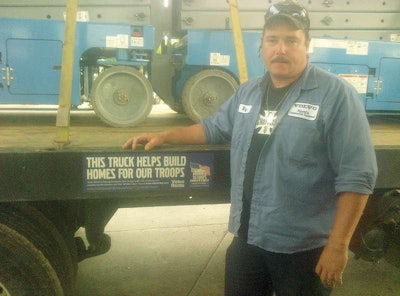
“So then I thought, ‘How about if I get the driver involved and get him to stand by the signage?'” Burch wrote in an email sent out to various media in May. The driver, Ray by his Volvo Rents uniform shirt, of course wondered why Burch would want a picture of the sticker with him in it. “Well, I explained that I am involved in trucking,” Burch, a past Truckload Carriers Association chairman, told him, adding that he was clearly a professional, and that “we need drivers like you.” It’s “all about the image,” he adds.
My reason for bringing this up is twofold — first, anybody know the driver, Ray? Raise your hand with a note in the comments and please tell him you saw him here.
Second, it’s no secret the image of the truck driver in the popular imagination has taken a beating over the past decades. It’s a subject we’ve revisited time and again here on the blog, and one I know many of you are passionate about. A conversation I had recently with Thomas Blake, the owner/part-operator of small intermodal fleet that bears his name and whom I’ve written about as recently as yesterday, veered toward professionalism among truckers.

Unafraid to play the devil’s advocate, Blake had tough prescriptions for himself and others around the industry. “Drivers and owner-operators,” he said, “we all need to realize that the grass really isn’t greener on the other side. It’s better to stay put somewhere longer and build your relationships, whether with dispatchers or brokers or shippers, and it will give you so much more bonding power with them over time.
“Drivers have to get more professional…. We need to clean up our own image – a $15 truck stop shirt with skulls on it is not appealing to anyone. Buy a polo for about the same money and it will project a much different image – it will present you as a professional. We get paid to do this, and we ought to be professional about it and take care of ourselves. Then, maybe the perception of us will change.”
What extends from that perception? Among other things, rates and pay, says Blake, referencing various examples from his negotiations with shippers and echoing Gary Salisbury of Fikes Truck Line, who in his last address as chairman of the Truckload Carriers Association earlier this year added that public policy, too, comes your way with good public perception. “My whole thought in this image process is that public image drives public policy” in a certain sense, he said (find more from his address via the Arkansas Trucking Report here). “So if we want to get a favorable ruling on legislative or regulatory issues, it’s obvious our image needs to be improved — drastically.”
And so, a question: What have you done lately to improve the industry’s image?





